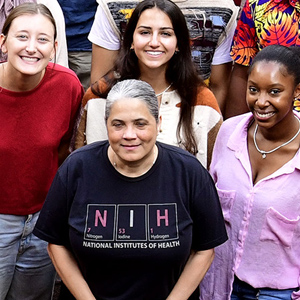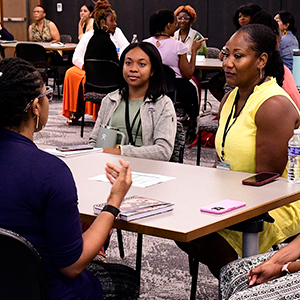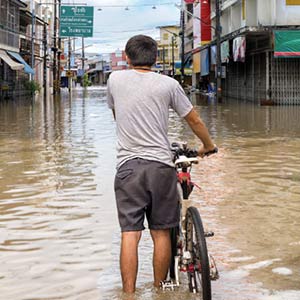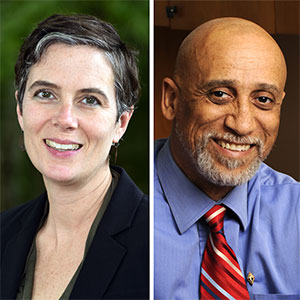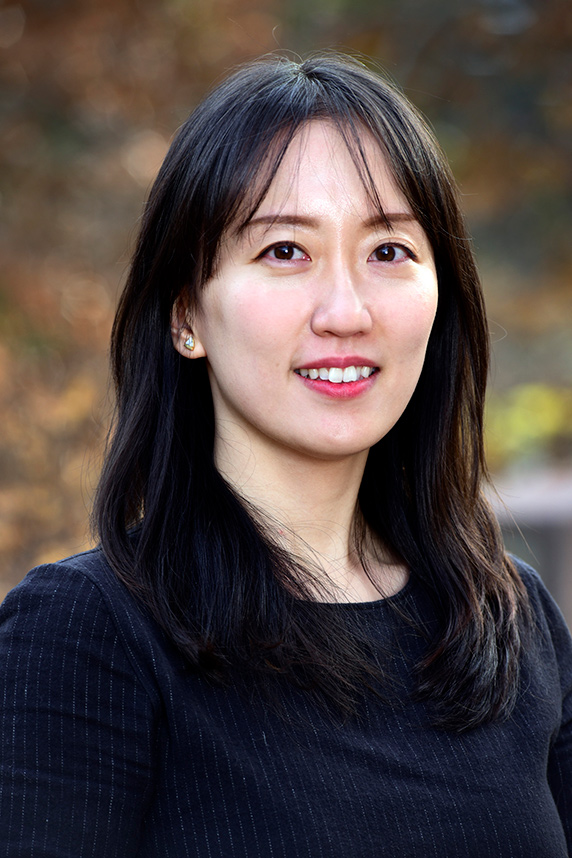 You was involved in a broad mix of practical and innovative projects at DNTP. In addition, she was a regular contributor to this newsletter. (Photo courtesy of Steve McCaw / NIEHS)
You was involved in a broad mix of practical and innovative projects at DNTP. In addition, she was a regular contributor to this newsletter. (Photo courtesy of Steve McCaw / NIEHS)When Dahea You, Ph.D., Pharm.D., joined the NIEHS Division of the National Toxicology Program (DNTP) as a postdoctoral fellow in 2019, she was already leaning toward a career in the pharmaceutical industry.
With doctorate degrees in toxicology and pharmacy from Rutgers University, she had always been interested in driving more translational and efficient toxicology studies in drug development. Specifically, she felt that better high-throughput assays to evaluate toxicity of candidate compounds, used early in the development process, could improve the success rate in the clinic.
“I knew that DNTP was the perfect place to learn these new cutting-edge techniques,” said You. Working with Alison Harrill, Ph.D., she sought to include genetic diversity in high-throughput assays for neurotoxicity testing.
To accomplish this, they used neural progenitor cells, or cells that give rise to many of the cell types in the central nervous system. The cells were isolated from Diversity Outbred mice, which is a mouse line designed as a model of genetic diversity.
You is now a project toxicologist at Takeda Pharmaceuticals.
Training at NIEHS
During her time at NIEHS, You enriched her postdoctoral experience through training, seminars, and good mentors. Trainings in computational biology offered through NIEHS were essential for her research projects, which involved analysis of RNA sequencing data and high-throughput imaging data.
Career symposium workshops were helpful in navigating the industry landscape and negotiating. You also appreciated NIEHS seminars by renowned researchers and the opportunities to meet with them over lunch.
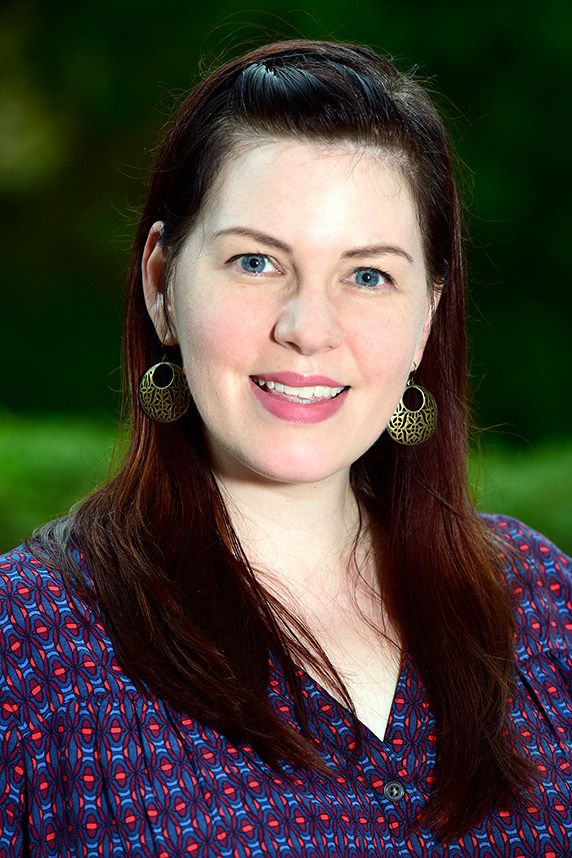 Harrill leads research projects to discover how individual genetic differences affect responses to drugs and chemical exposures. (Photo courtesy of Steve McCaw / NIEHS)
Harrill leads research projects to discover how individual genetic differences affect responses to drugs and chemical exposures. (Photo courtesy of Steve McCaw / NIEHS)Good mentors were also key resources for You. In addition to Harrill, her primary mentor, You was mentored by others in DNTP. Co-mentor, Nisha Sipes, Ph.D., now serves as an assistant center director for research translations and program and regulatory support at the U.S. Environmental Protection Agency (EPA).
Talking to people from different backgrounds helped You learn about various career paths, such as scientific positions in the government.
Networking is key
You heard about the Takeda position from a graduate school colleague. Coincidentally, the hiring manager — and her future boss — knew You’s graduate school advisor, who had a reputation for training good scientists. This helped build a positive impression even before the interview.
“Keeping your professional network is important,” You said. She also tapped her network of peers in the pharmaceutical industry to get advice about interviewing and negotiation strategies.
Leadership opportunities
In addition to a strong professional network, You recommended that trainees gain project management and leadership skills. She said that within her first few days at Takeda, the importance of team science was clear.
You’s leadership roles at NIEHS and the Society of Toxicology taught her how to work with different kinds of people, manage timelines, and operate within complex organizational structures.
“You led cross-agency projects with EPA and FDA [U.S. Food and Drug Administration],” noted Harrill. “And she participated in coordination of a joint project across sites. Her incredible organization and determination prepared her for the collaborative research projects that she'll tackle at Takeda.”
As co-chair of the 2021 NIEHS Biomedical Career Symposium, she helped convert the popular annual event into a virtual meeting.
The future: new alternative methods
You aspires to continue learning to be an effective toxicologist and hopes to apply her experience in new alternative methods (NAMs) to develop drugs more safely. Currently, NAMs, such as in vitro assays or computational approaches, are generally used early in drug development, for example, to identify whether candidate compounds show toxicity.
Ultimately, You would like to work toward implementing NAMs in tests to meet regulatory approval.
(Mimi Huang, Ph.D., is an Intramural Research Training Award postdoctoral fellow in DNTP.)






